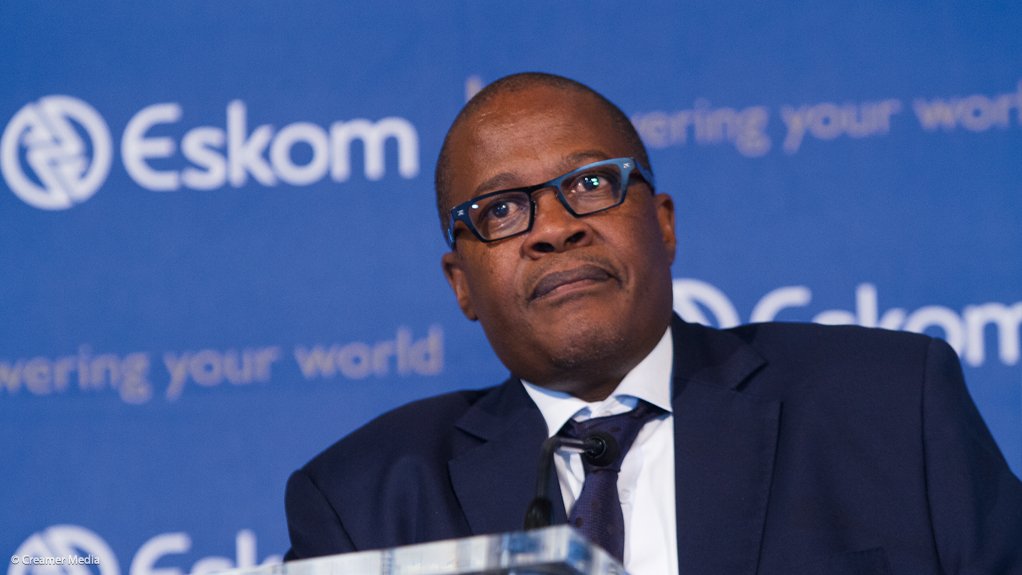/ MEDIA STATEMENT / The content on this page is not written by Polity.org.za, but is supplied by third parties. This content does not constitute news reporting by Polity.org.za.
An offer to Transnet from IT company T-Systems of a R248-million discount in pursuit of the parastatal’s network services tender in late 2013, actually came from government. This is according to Gerhard van der Westhuizen, who worked in the procurement division of Transnet until 2014.
Van der Westhuizen testified before the commission of inquiry into state capture on Monday, giving some detail on the decision by former Transnet group CEO Brian Molefe to rescind the award of the tender to Neotel. The approval of Neotel was made by former CEO of Transnet Pipelines CEO Sharla Chetty (nee Pillay), who was acting in Molefe’s absence while the latter was on an overseas trip at the time. The urgency of the award, said Van der Westhuizen, required a quick decision. The existing tender at the time, held by Neotel, was coming to an end on 31 October, and Chetty signed off on the 30th.
On his return, Molefe instructed Van der Westhuizen to write a memorandum supporting a decision to reverse the award, giving the tender to T-Systems instead. Neotel had already been sent a letter of award. Despite his opposition to Molefe’s position on the matter – which was expressed during a meeting shortly after his return – the instruction was clear to write the memo. Van der Westhuizen told the inquiry that he sensed that he would be subjected to victimisation if he continued to oppose Molefe.
Evidence leader Veruschka September asked Van der Westhuizen if he was of the opinion that Molefe made the decision to reverse independently, to which he replied yes, and that none of his warnings to Molefe regarding his decision were taken into account.
Transnet’s background with both Neotel and T-Systems, said Van der Westhuizen, went back several years before Molefe’s controversial decision. It dates back to the period before he arrived at Transnet, when under his predecessor Maria Ramos, the company took a strategic decision to unbundle and sell-off some of their assets, including Transtel and Arivia.com – which operated its network and information technology assets – between 2007 and 2008. Arivia owned Transnet’s data centre at the time, including its servers and other hardware technology. Transtel, on the other hand, was in charge of its network services, which included a cable system spanning over 9 000km.
T-Systems went on to buy Arivia, while Neotel purchased the Transtel network. Both companies continued to provide the respective services to Transnet for several years, on contractual bases, until the era of Molefe when the parastatal explored the strategic move of buying back its assets.
In 2012, when Transnet decided to release requests for proposals in respect of the network services tender, both Neotel and T-Systems entered the race. The evaluation process scored Neotel favourably in terms of its pricing structure, with T-Systems coming in third, behind Dimension Data.
In the memorandum supporting his reversal of the award to Neotel, Molefe argued that a discount of R248-million offered by T-Systems should be taken into account, as it changed the pricing scores significantly. This, said Van der Westhuizen, would have meant a breach of Transnet’s own procurement policies, as his request came after the best and final offers of each bidder had been submitted.
In its bid for the tender, T-Systems collaborated with state-owned Broadband Infraco, to whose board then public enterprises minister Malusi Gigaba had appointed Salim Essa as a member. Essa has been widely alleged to be a trusted associate of the Gupta family, particularly in its bids for government contracts. The discount that sought to put T-Systems in the top spot, said Van der Westhuizen, was communicated to Transnet as an investment on the part of the government shareholder (in this case Gigaba) in the deal.
Molefe’s reversal – which did not follow internal procurement protocol – was taken on legal opinion by internal structures at Transnet, and ruled unfair. A further external audit process found the same.
Issued by Corruption Watch
EMAIL THIS ARTICLE SAVE THIS ARTICLE ARTICLE ENQUIRY
To subscribe email subscriptions@creamermedia.co.za or click here
To advertise email advertising@creamermedia.co.za or click here











